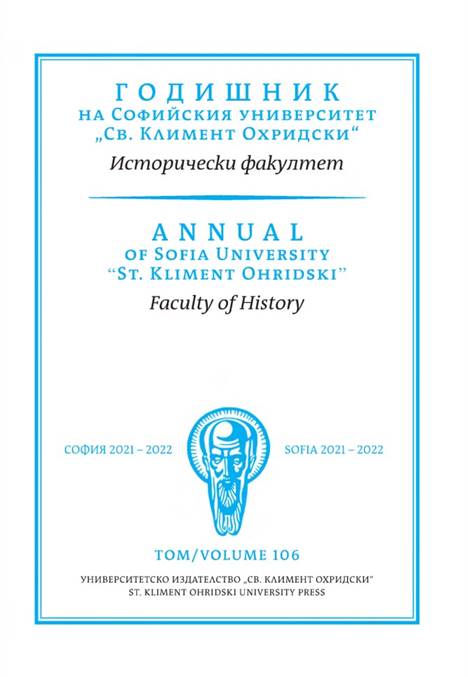Варгас и „жълтата заплаха": Същност и причини за антияпонските настроения в Бразилия преди Втората световна война
Vargas and "Yellow Peril": Nature and Causes of Anti-Japanese Sentiment in Brazil before World War II
Author(s): Boryana MitevaSubject(s): History, Political history, Interwar Period (1920 - 1939)
Published by: Софийски университет »Св. Климент Охридски«
Keywords: Yellow Peril; Anti-Japanese Sentiment; Brazilian Nationalism; Japanese community in Brazil; Brazil; Japan
Summary/Abstract: The Vargas era is one of the most difficult times for the Japanese community in Brazil. Indeed, Brazil is no exception to the rest of the countries in Western Hemisphere, flooded with “yellow peril” propaganda and anti-Japanese legislation before World War II. However, it is superficial to believe that Brazil is simply following the “trends” in the region imposed by the United States and followed by its neighbors in South America. The escalation of anti-Japanese sentiment are not only rooted in the established anti-democratic nationalistic regime, put foreigners at a disadvantage. This paper will attempt to contribute to understanding the nature and causes of anti-Japanese sentiment in Brazil, complementing existing historiography with an analysis of factors such as the racist and xenophobic basis on which Vargas rests and his overall vision for the country's development, the negative effects of the Great Depression, the clash of Brazilian and Japanese nationalism. The main purpose of the study is to explain whether the anti-immigrant measures introduced in the 1930s are limited to the Vargas administration, whether they are targeted specifically at Japanese immigrants, and whether they are rooted just in political propaganda or have serious grounds.
Journal: Годишник на Софийския университет „Св. Климент Охридски“ – Исторически факултет
- Issue Year: 106/2023
- Issue No: 1
- Page Range: 155-186
- Page Count: 31
- Language: Bulgarian

